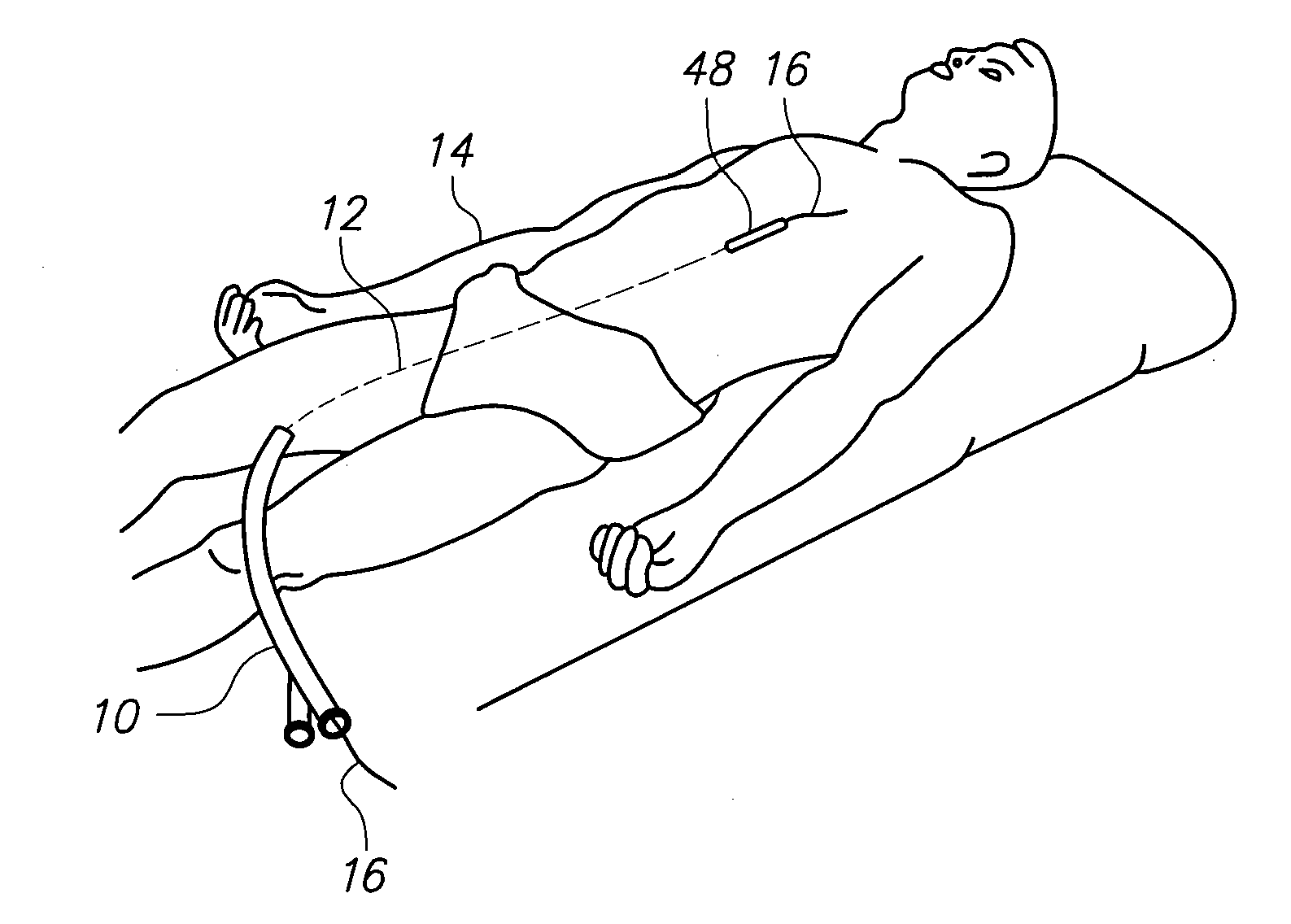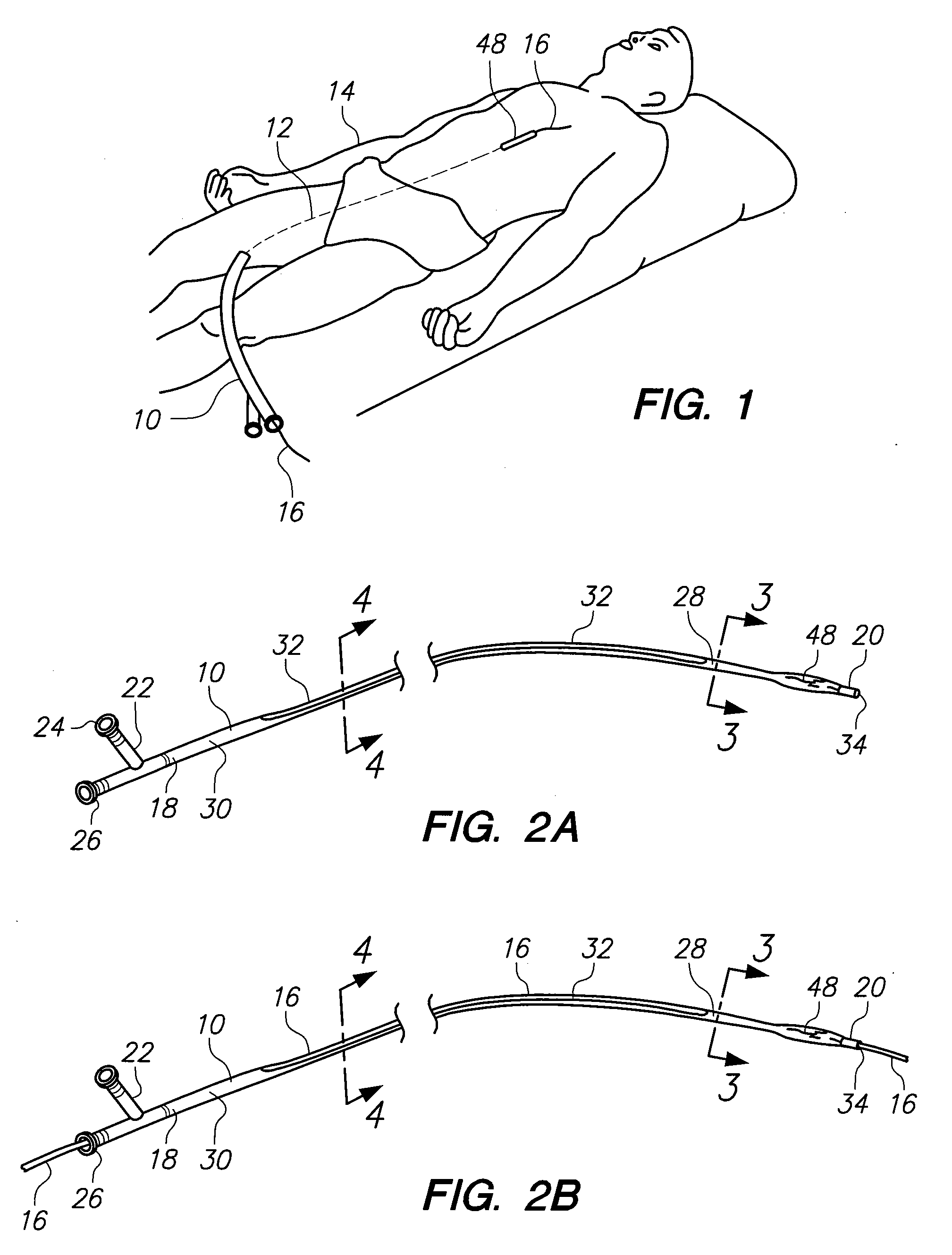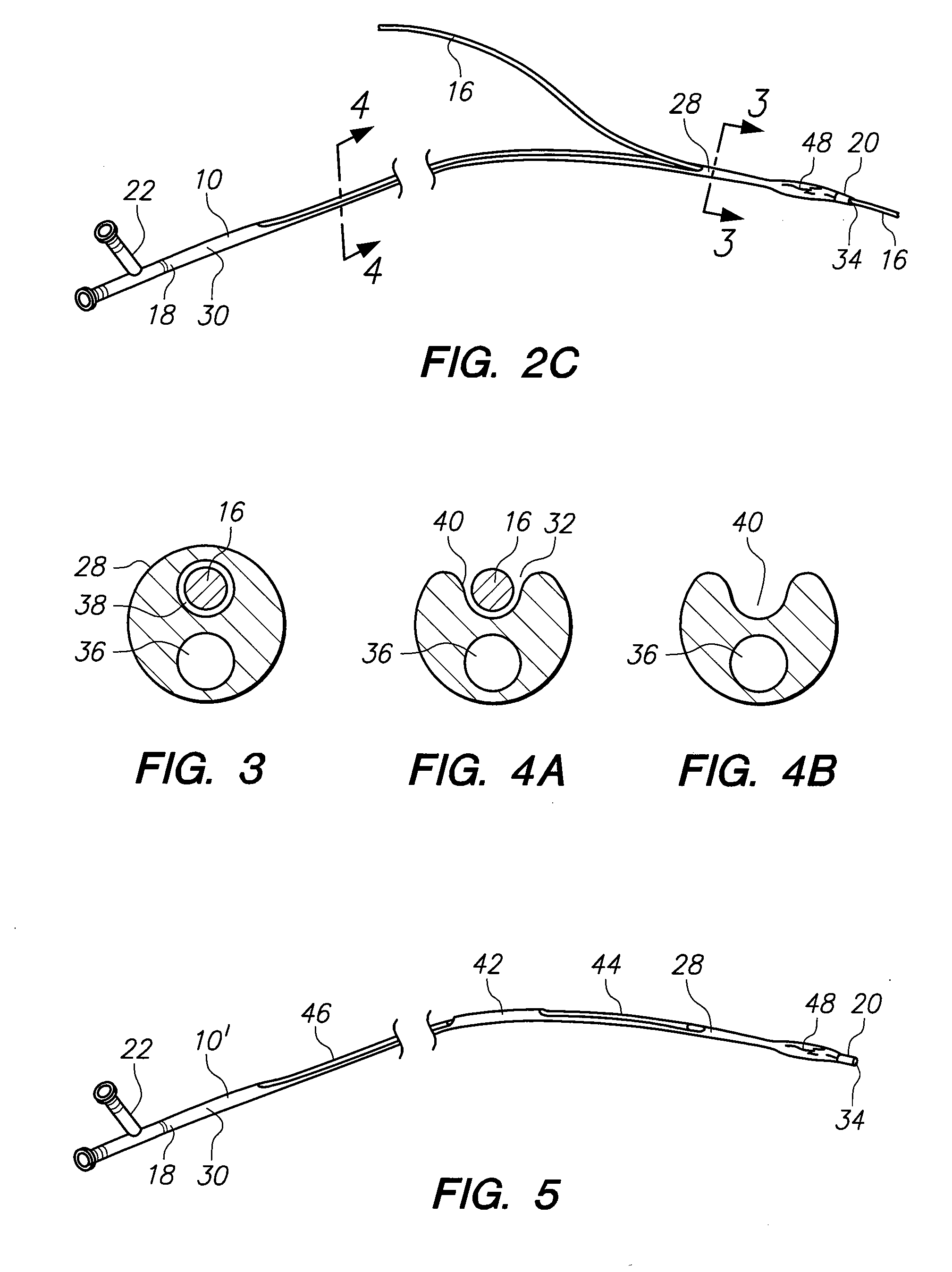Over-the-wire catheter with lateral access
a catheter and lateral access technology, applied in the field of catheters, can solve the problems that the particular catheter does not necessarily have the structural wherewithal to effectively navigate the vasculature on its own, and achieve the effect of facilitating the advancement of the catheter
- Summary
- Abstract
- Description
- Claims
- Application Information
AI Technical Summary
Benefits of technology
Problems solved by technology
Method used
Image
Examples
Embodiment Construction
[0020]Referring initially to FIG. 1 a catheter in accordance with the present invention is shown and designated 10. As shown, the catheter 10 has been advanced along a path 12 through the vasculature of a patient 14 over a guide wire 16. The actual structure for the catheter 10 will be best seen in FIG. 2A.
[0021]In FIG. 2A it will be seen that the catheter 10 has a proximal end 18 and a distal end 20. A Y-site 22, of a type well known in the pertinent art, is attached to the proximal end 18 of the catheter 10 to establish a main port 24 and a proximal end port 26. FIG. 2A also shows that a distal bracket 28 is formed on the catheter 10, and that the distal bracket 28 extends in a proximal direction from the distal end 20 of the catheter 10. Similarly, FIG. 2A shows a proximal bracket 30 that is formed on the catheter 10, and that the proximal bracket 30 extends in a distal direction from the proximal end 18 of the catheter 10. It is also seen in FIG. 2A that, together, the distal br...
PUM
 Login to View More
Login to View More Abstract
Description
Claims
Application Information
 Login to View More
Login to View More - R&D
- Intellectual Property
- Life Sciences
- Materials
- Tech Scout
- Unparalleled Data Quality
- Higher Quality Content
- 60% Fewer Hallucinations
Browse by: Latest US Patents, China's latest patents, Technical Efficacy Thesaurus, Application Domain, Technology Topic, Popular Technical Reports.
© 2025 PatSnap. All rights reserved.Legal|Privacy policy|Modern Slavery Act Transparency Statement|Sitemap|About US| Contact US: help@patsnap.com



